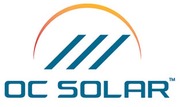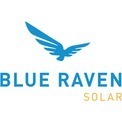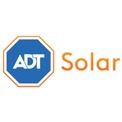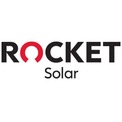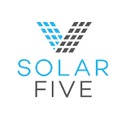- Warranty
- 10 to 25 years
- Payment options
- Cash, loan, lease
- Availability
- Nationwide
SunPower specializes in designing, installing and maintaining panel systems for residential, commercial and industrial applications. You can choose between front- or back-contact panels with low-profile and solar roofing tile options. The company's Maxeon 5 series solar panels, known for durability, reliability and efficiency, are built on a solid copper foundation.
SunPower also offers solar battery servicing and energy auditing to help you see how your power usage changes over time. After installation, SunPower offers monitoring and maintenance services to maximize your solar system’s efficiency and, if necessary, diagnose any issues.
SunPower is a great option if you're not a solar expert. The company's team takes care of everything: evaluating your energy needs, customizing your system, helping you with permits and coordinating the installation.
We also like that SunPower was awarded the Cradle to Cradle Certification for sustainable manufacturing processes in 2014 and 2016, and its Maxeon (DC) solar panels won the inaugural PV Magazine Sustainability Award in 2019.
"When it rains, it doesn't produce as much, but it produces enough for the house," Robert in California told us. "So, I'm happy with SunPower and I recommended them. It's a bit pricey but it's worth it."
As Robert and others pointed out, SunPower isn't the cheapest option — upfront costs tend to be a little higher than other companies. After all, you get what you pay for.
"They are not the least expensive panels, by a long shot, but there is no better 'bang for your buck' brand out there when it comes to efficiency and quality," according to Jeff in California.
"Based on my research, SunPower's panels seem to stand up longer and don't degrade as much," according to ConsumerAffairs reviewer Michele in California.
Another SunPower customer, Jorge in California, told us, "SunPower is consistently one of the top providers for good reason." Jorge and other satisfied SunPower customers have frequently told us about SunPower's helpful staff, easy installation process and immediate savings.
"I got 14 panels, and setting them up took a week," Abell in Texas said. "The system covers my monthly and also sends some power back to the grid. I get paid for that by my electricity provider too. They have an app through which you can monitor the production of your system."
Douglas in Connecticut also highlighted SunPower's "awesome" app: "I check it all the time. I can predict my electric bill from that app because it tracks all my power in and out. So, I can just look at that to know how we're doing."
Similarly, Gary in Connecticut is “absolutely hooked on watching the Sunpower app and seeing how much power we are generating and saving on electricity. Have numerous friends and neighbors with solar and they are jealous of the app. Friends without solar are jealous that we no longer have a monthly electric bill.”
"The way that they sold the system was as turnkey, which was exactly that," Cesar in Pflugerville told us. "They did all of the permits and they hooked everything up. They gave me [an] explanation of everything that they did every time they were here. So it was very straightforward."
If an issue comes up, the company does what it can to fix it, according to Christina in California. "My experience when I enrolled was extremely positive. I like the communication, the professionalism and the work ethics of the crew that came out to the house. The only thing was there's a turn-off switch that is on the street," Christina said. "They came back out and fixed it for no charge."












